Hail To The Salesman In Chief
Act now, and France will throw in a free set of steak knives!
You can say many things about French president Emmanuel Macron, but king of political optics he is not.
Since he was first elected in 2017, he’s been dogged by the label “President of the Rich!” Not only has he not been able to shake that image, but he seems to play right into it with what can only be described as a historic lack of self-awareness.
Case in point: On Monday, he held his sixth annual “Choose France” conference with business leaders from around the world. This year, 200 titans of industry came to town to kiss the ring or bend the knee or whatever metaphor you want to pick. Macron’s comms people trumpeted the success of the event by proclaiming that the companies had committed to investing more than $14 billion in France, the biggest such figure since he started holding the event.
Macron relishes his role as Head Economic Cheerleader. To impress his guests, he holds the event at Versailles, which as you may recall, has some serious royal overtones and harks back to previous rulers of France who were out of touch with their people and lost their heads, literally.
So the current president France parading around the palace with millionaires and billionaires may have some economic benefits but is not doing his image any favors with the rabble.
The attendees included such notables as Head Mouseketeer Bob Iger.
Also in town was far-right propagandist and social media troll Elon Musk. The French government last week announced a new series of clean energy and green tech incentives. They badly want Musk to consider opening a battery factory or Tesla factory in France.
After the event, Musk suggested that one of the 1,500 companies he runs may make an investment in France at some point, someday.
"No announcement today but I am very impressed with President Macron and the French government and how welcoming they are," he told reporters after the meeting with Macron.
Still, there were plenty of other splashy deals revealed. The French government said that 28 new investments would be made by the likes of U.S. pharmaceutical giant Pfizer, Swedish furniture maker Ikea, and investment bank Morgan Stanley. These are expected to create 8,000 jobs.
The biggest of this economic bunch is a €5.2 billion project by a Taiwanese car battery maker in Dunkirk. That follows on the heels of another €1.5 billion joint venture between a Chinese and French company that will produce battery components in the same city.
Macron traveled to Dunkirk last week to tour an aluminum factor and to take a victory lap.
“France is changing, is getting adapted to the course of the world and I believe that we're following the right path, which is to reindustrialize the country, to be more sovereign and more respectful of the climate and biodiversity," Macron said Friday during a visit to the northern port city of Dunkirk, according to RFI.
It is such an onslaught of positive economic news that Macron and his people seem genuinely baffled that a significant percentage of the French population detests him. They seem to think that because the macroeconomic numbers are so self-evidently good, and the trends are heading in the right direction, this should be translating into adoration.
Entrepreneur Rafik Smati, speaking on BFM Business, pointed out this economic disconnect: “All the foreign entrepreneurs with whom I speak are in agreement on one point: France is waking up and a small economic miracle is happening. However, in France, many are convinced that everything is going wrong. It’s a curious paradox.”
The Macronistas shouldn’t be so puzzled. These big announcements and the back-patting mask the underlying reason for so much economic anxiety.
The Perception Gap
Consider this graphic released by the Élysée recently:
It confirms that on a macro level, Macron’s policies are paying dividends. He has a solid argument there. After several decades of losing factories, France’s manufacturing sector is growing overall again.
However, the important word above is “net.” More factories are being opened than closed. But there are still a lot of factories being closed.
In the first quarter of 2023, companies announced the opening of 33 industrial sites, but the closing of 25, according to BFM. For all of 2022, 150 industrial sites opened while 70 closed.
Again, that’s obviously great on a macro level, but for the people and communities where those factories are closing, it represents a huge disruption personally and socially. In France, it’s not so easy to close a company or to lay people off. The company must convince the government that there is no alternative, which helps protect jobs from the whims of management, but also means that any closing becomes a political issue: Is the government doing enough to block the closing or forcing the companies to find buyers who will takeover and keep the sites open?
For instance, the closing of a Novartis cellular therapeutic site has become a political hot button because the company received money under a France Relance program to jump-start the economy post-Covid. In another instance, a Nestlé factory, Buitoni de Caudry, which makes pizzas has been shuttered after two kids died after eating their pizzas.
In both cases, Industrial Minister Roland Lescure has been pressuring the companies to find buyers. Meanwhile, locals are mad at the bosses and business owners, but they’re also angry at the government for failing to save the jobs.
The fact that another company is going to build a battery components factory 50km away is small solace to displaced workers who may not even be qualified for those jobs. That good macroeconomic news is meaningless to someone watching the place they worked for 20 years or more just pack it in.
Marchons, Marchons…
When Macron is hobnobbing with CEOs, he sees himself in the role of an economic hero. But for those who have lost their jobs amid the ongoing economic churn below the waters, they see a man completely detached from the reality of their lives, and utterly lacking in empathy. Throw in the explosive retirement reform that will force many French to work longer, and it’s hardly surprising that the fury is sufficient to continue driving protests.
While Macron was inside Versailles, a couple of hundred protestors marched around outside banging pots and pans in what has now become the symbol of the backlash.
Unless Macron can find a way to recognize and adapt to this disconnect between what he thinks the French should see (his accomplishments) and what they actually see (the economic decay in their communities), he can probably expect these protests to continue for weeks and months to come.
Chris O’Brien
Le Pecq


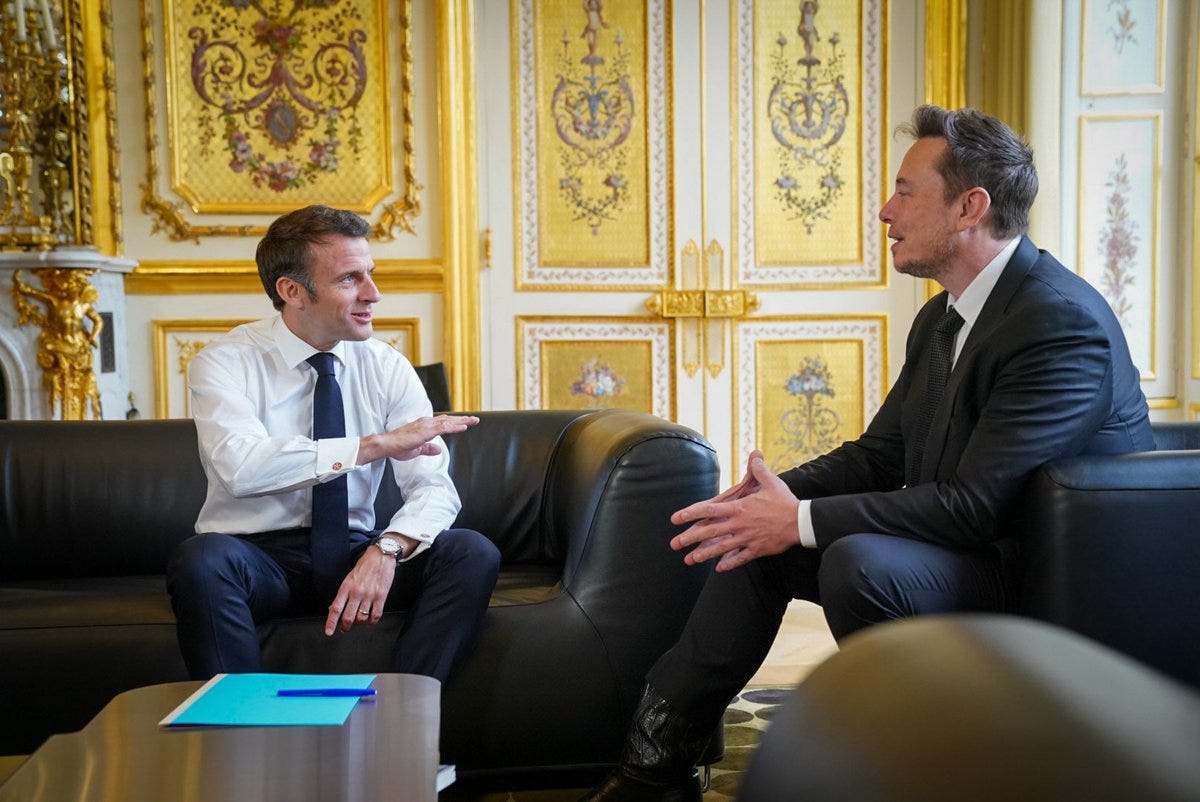
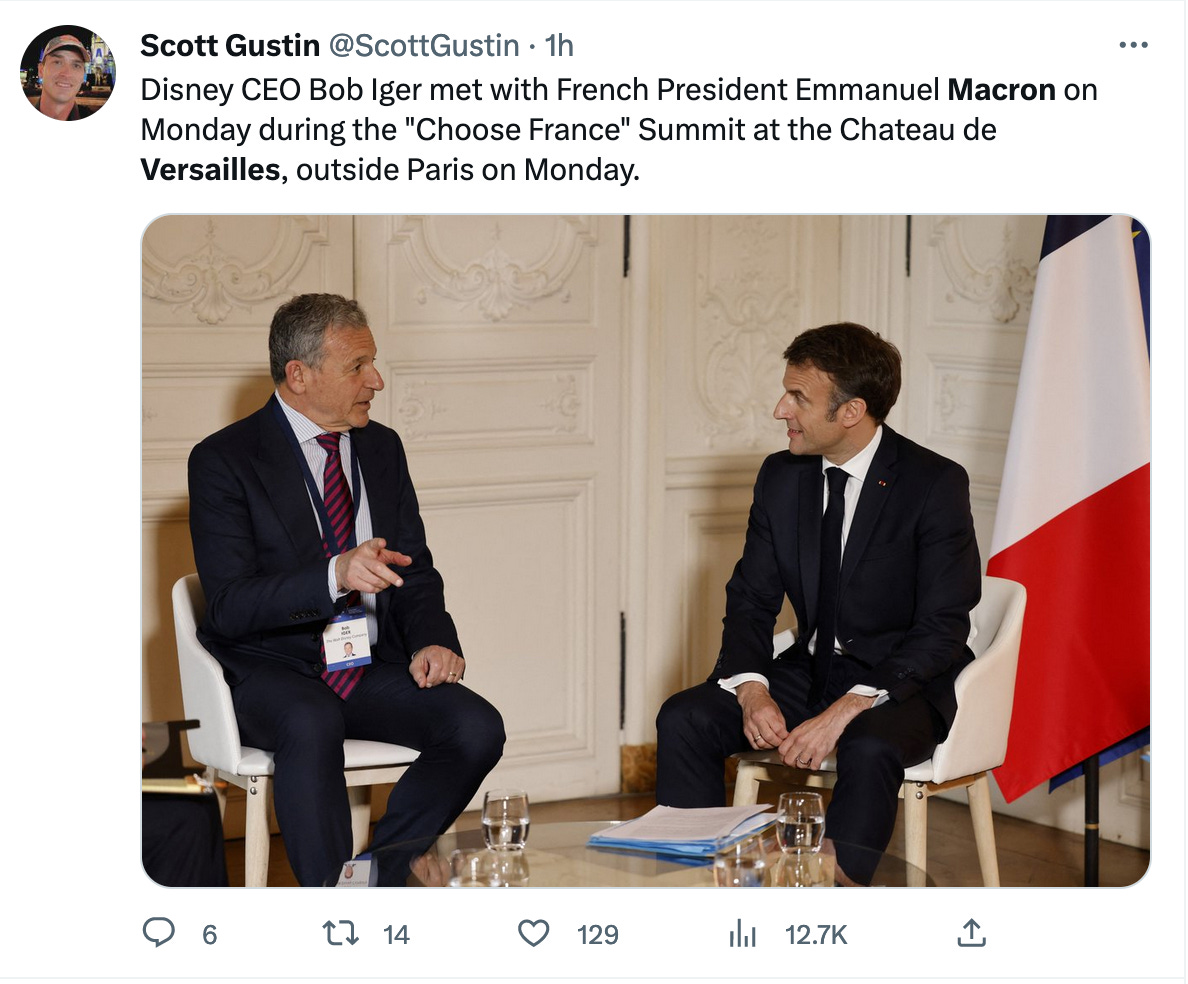
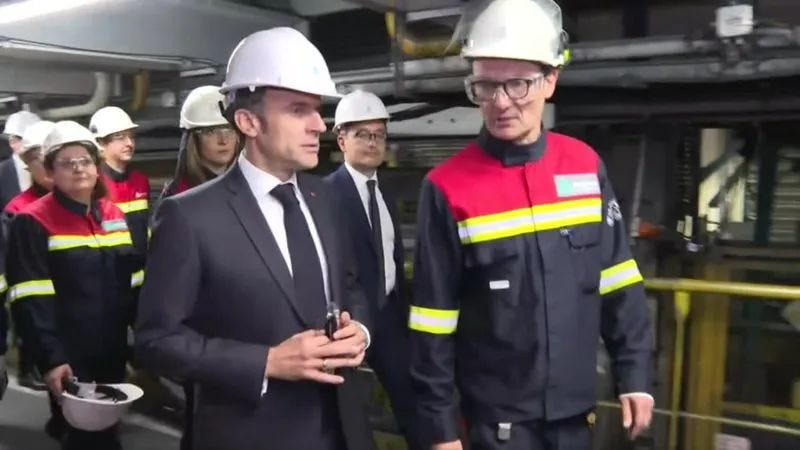
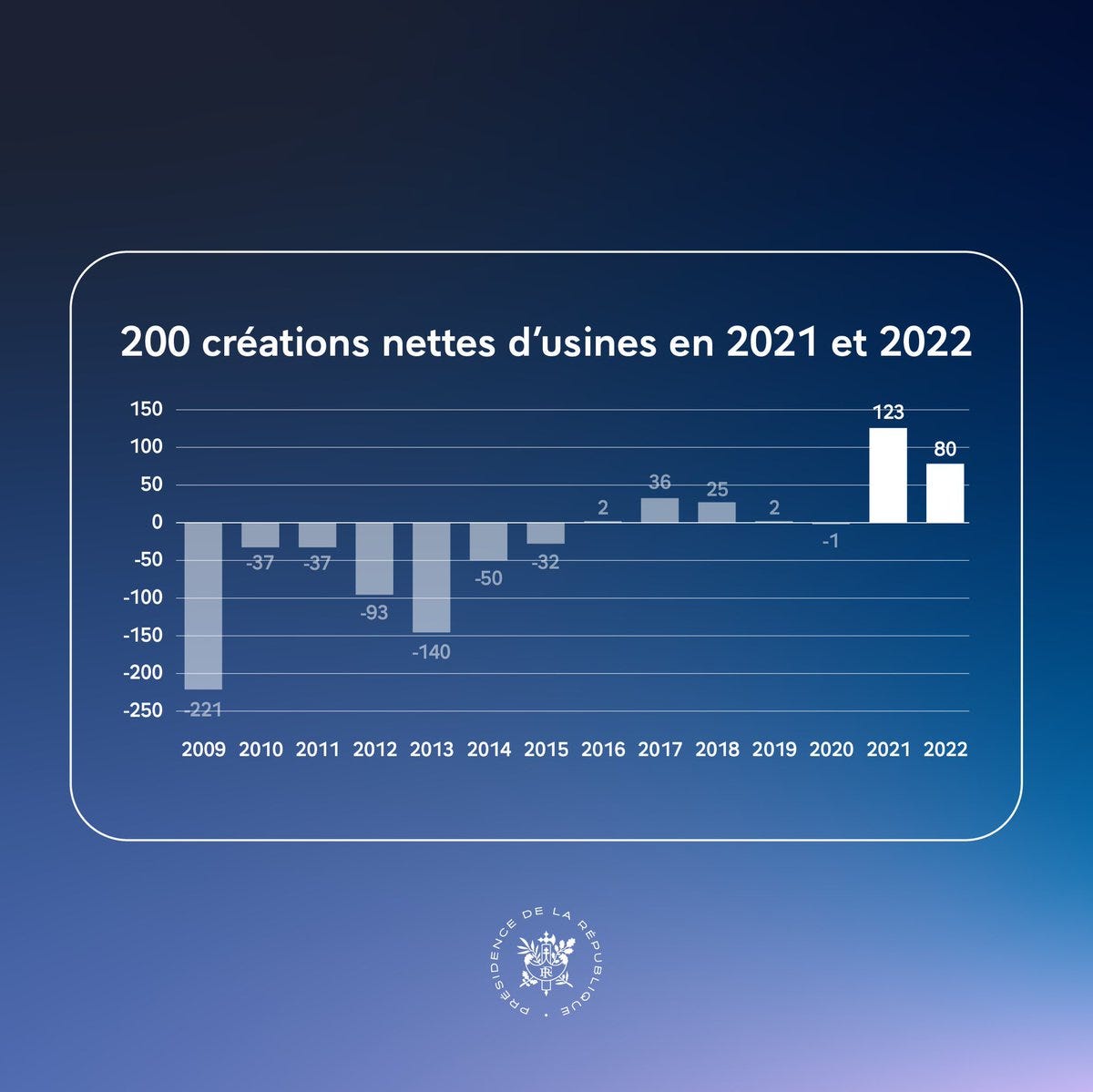
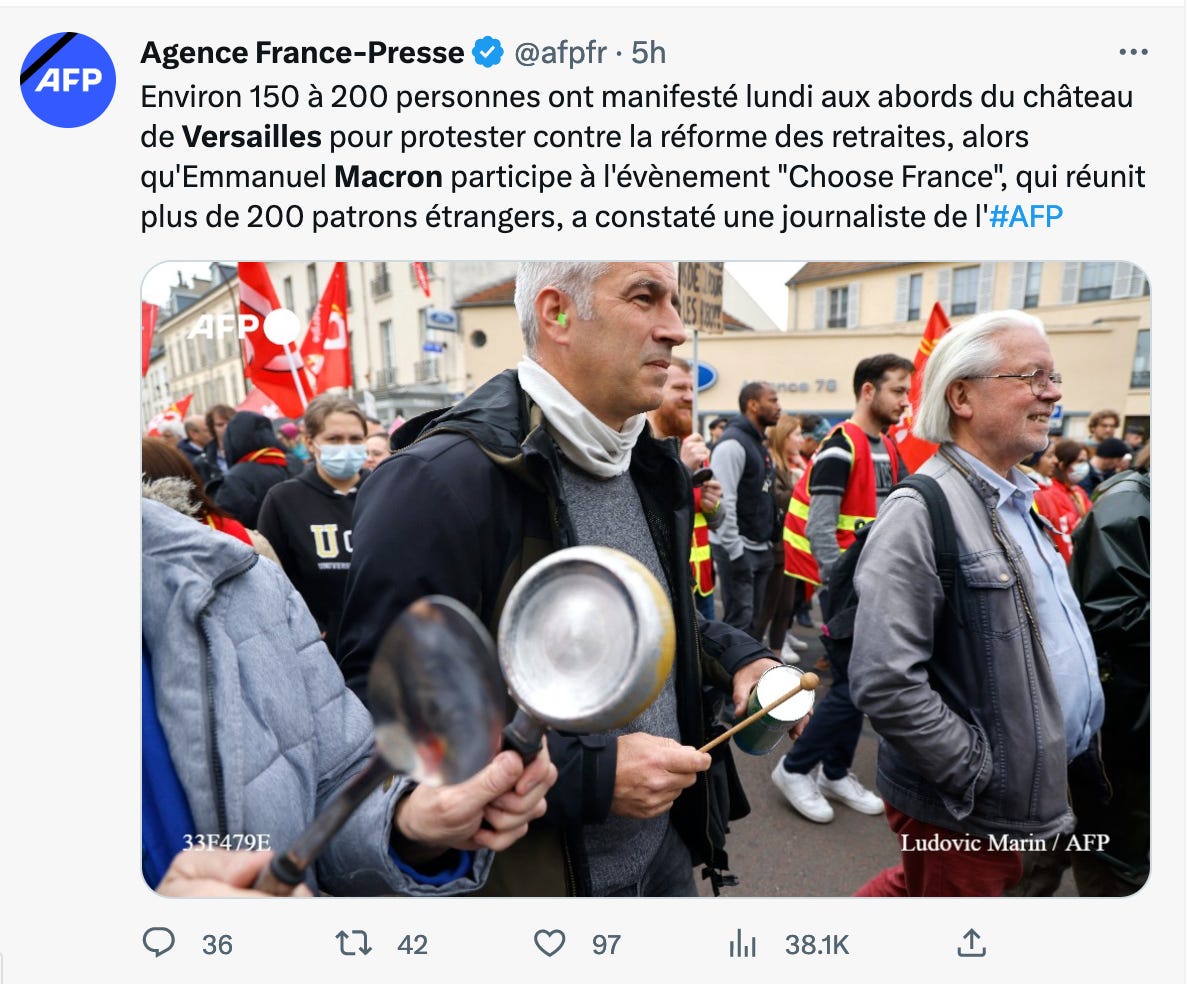

The problem is, from what I understand, is that he draws in wealthy industrialists then pushes the rest of the country into their open hands. He’s trying to open private universities while doing nothing to help public schools, he wants to privatize both healthcare and health insurance. The French around me - not all but many - see him as a disaster to the socialist system.
Dear Mr O’Brien, I have enjoyed your well written articles until today. You appear to have a lot of axes to grind on so many subjects. Either you are ill informed or just obtuse - as I believe many of the french population are when it comes to shoring up the financial future of their country. Are you a “petrol head”? Will you never make the change to an EV? If one day you do change, you will have to take back what you have called Elon Musk who has , until recently, single handedly dragged mankind away from fossil-fuel-guzzling vehicles to the time of hopefully cleaner air for all. As for the president of France, I sure as hell wouldn’t want his job. Maybe you are only guilty of the age old state of mankind, i.e. resisting change!